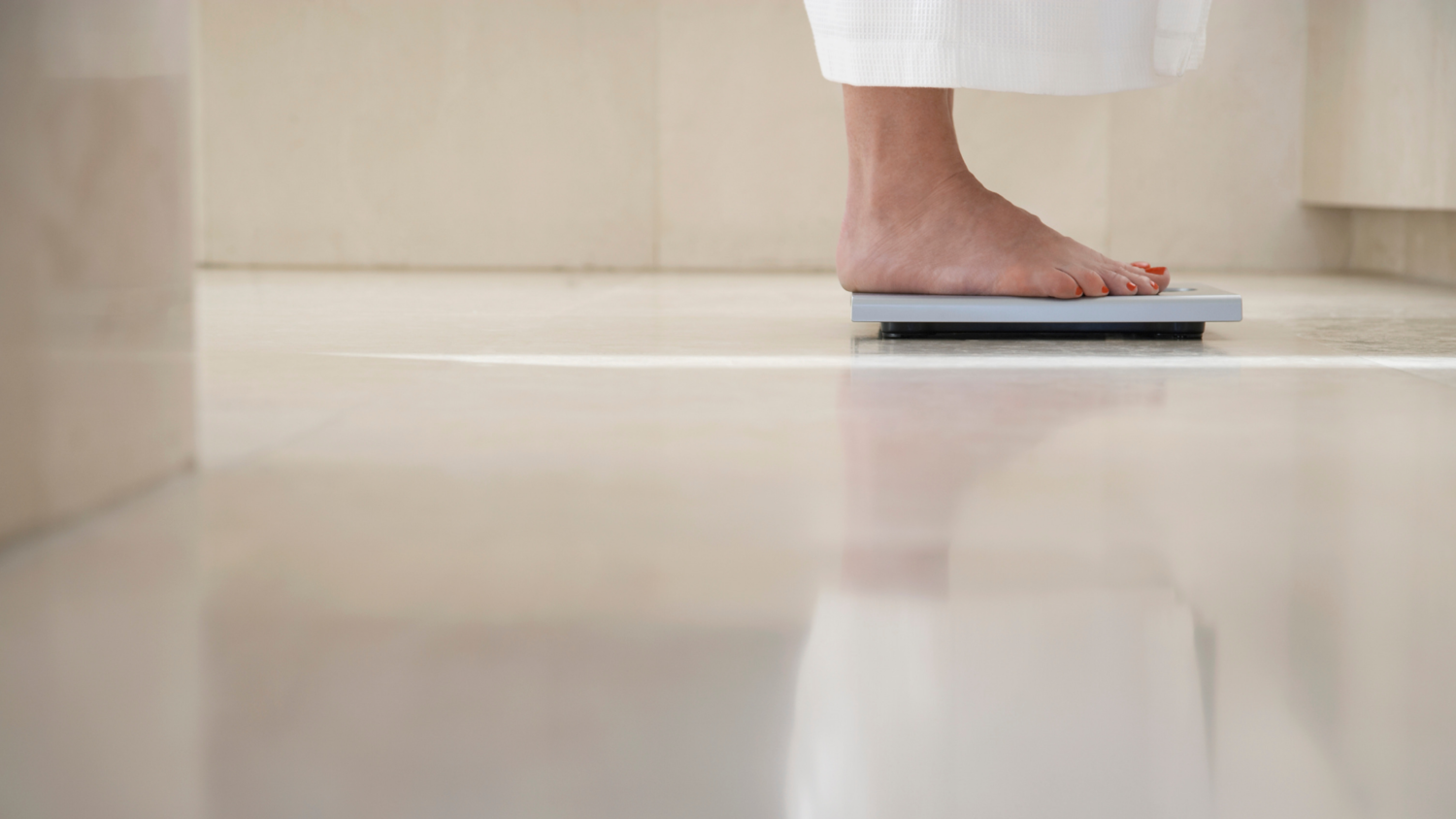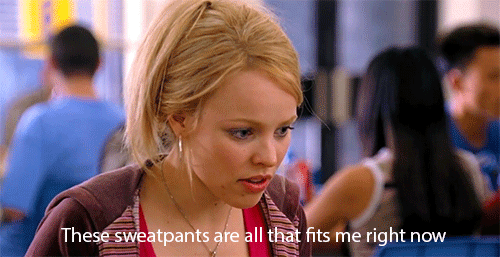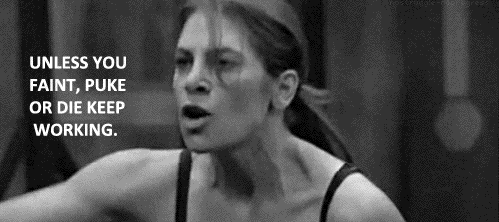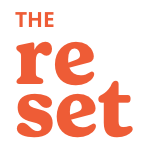Some time in the last few years, I put away my scale. I haven’t stepped on it at all for months. And, do you know what? The universe didn’t explode. Should you stop weighing yourself, too?

WHEN WEIGHING HURTS.
It’s been a couple of years since my last weigh-in and even longer since I weighed in regularly. Ugh, even that term, “weigh-in,” sounds like it should refer to the management of cattle, not humans.
With a history of eating disorders in my younger days and a challenging postpartum experience the third time around, the scale just didn’t feel like my friend. I dreaded stepping on it. I didn’t step on it often enough to actually track trends — usually I weighed in when I felt I’d been “on track” for a few days or when I felt I’d been “off the wagon” for a few days and wanted confirmation of my “virtue” or “failure.”
But, the truth is, I already knew whether I’d been active and eating healthfully or less active and indulging in comfort eating and wine. Well, more comfort eating and wine than usual.

The number on the scale didn’t change anything. The yucky feeling I got when it confirmed my weight gain could crush me for the entire day. Maybe worse, the validation of seeing a lower number was like a “fix.” It gave me a high that fuelled old habits of deprivation and overindulgence. Which means by the next time I stepped on the scale I had likely over-restricted myself, then run out of self-hating willpower and ended up over-indulging…leading to a higher number again. And then the restriction cycle started again.
Sound familiar to anyone?
WHEN WEIGHING HELPS.
I hesitate to even send weight-related advice out into the world, because I haven’t coached clients to pursue fat loss for years now. I never suggest weighing one’s self and I believe most of our concerns about our weight are not, in fact, related to our health at all, but to our belief we are only valuable if we are as small as possible.
However, I’d rather you get the straight facts here than from some airhead Instagram influencer or the latest weight loss reality show. (Do they still make those? Please tell me they’ve stopped.)

Sometimes, a mama who is earnestly making an effort to love and care for her own body might at the same time, because humans are complex creatures, also decide that decreasing her body fat level could improve her health outcomes and quality of life. Her doctor might tell her it’s in her best interest. She might not be feeling so great. She might have had some not-so-great bloodwork.
I won’t help you live in the illusion that shrinking will make you feel better about yourself. But I will help you slowly and gradually change your habits to support a natural stabilization of your body weight in a healthy zone, safely and without obsession.
There are some weight-loss & weight-maintenance behaviours that are proven, study after study, to be very effective: keeping a food journal, planning your meals, telling your friends and family about your goals, choosing exercises you enjoy, and — last but definitely not least– weighing yourself regularly.
If our personal training clients tell us they feel the need to weigh themselves, we suggest they do it infrequently and at predetermined intervals. In between, consider putting the scale entirely out of sight.
If you decide to weigh, I suggest no more frequently than every 2-4 weeks. The scale gives you an amalgam of trends in your fluid levels, fat loss and muscle gain, but the relationship between weight and health is SKETCHY. The research is paltry. Truthfully, most of our weight-related guidelines come from societal constructs about what size and shape a body should be with no regard for individual, cultural, genetic or lifestyle-related characteristics.
Weighing too frequently, especially during the changing times of pregnancy and postpartum, shows every “blip” on the radar. Tracking weight for health outcomes should be about long-term trends, not an obsessive record of every ounce of water weight gained or lost. When your weight fluctuates day by day, fluid retention and hormones, not fat loss or gain, is responsible. Fat loss or gain is a gradual, often barely noticeable process.
If you are the type who is very motivated by metrics and numbers, rationally keeping a record of your weight might help you get real about how your habits have changed in the past few weeks, if you’ve seen a change in your usual weight range.
Notice I said “range.” Not exact number. You’re not a prize heifer or a featherweight boxer, I’m assuming? Neither your cardiovascular system nor your friends are going to notice your normal fluctuations within a few pounds.

THE STRING THING
When a client asks me for help with tracking success in weight loss – real weight loss to improve her health markers and reduce the chance of chronic disease – I suggest that instead of a scale she uses a string to measure around her belly button, then to mark it with a marker. Each month she can pull out the string and see if the new mark indicates a slight move toward the decrease of abdominal fat, really the only fat you need to be concerned about if “health” if actually your goal.
The number doesn’t matter. The mark on the string tells her that her efforts over the past month have been making a difference. Well, that and how strong and confident and mobile and full of energy she’s feeling.
HOW TO TRACK WITHOUT WEIGHING.
You know weighing is helping you if you do it without obsession. You know it’s okay if you don’t find your mood affected by the number. You know it’s okay if you’re comfortable doing it no matter what your recent habits have been, and if you don’t change your behaviour in anticipation of a coming weigh-in.
But some people, women in particular, stand on the scale every morning, stark naked and nervous, awaiting the day’s fate. Will I be lower than I was yesterday and feel “good” and confident? Or will I be higher and feel worthless, incapable of being a “successful” woman and destined for failure?
If you worry, obsess, plan, prepare, or punish yourself over a weigh-in, you might be better not weighing at all.
There are plenty of ways to evaluate your fitness level. Here are some ideas.
- How many push-ups can you do in a minute? Challenge yourself once per month while you continue to work on improving your form. Have you progressed from doing them on a wall to a stair? From a stair to your hands and knees?
- How quickly can you run or walk a mile? Track your time once per month.
- How do your clothes fit compared to a year ago? Are you fluctuating a bit like normal, or are you completely levelling up to a new size altogether – or, conversely, finding everything is sagging and too loose?
- How are your pelvic floor and core performing and feeling, and do you feel more or less confident in your core strength doing your everyday tasks and regular workouts or sports? Are you having more pelvic floor symptoms than in the past? More back pain?
- How do you feel in your body? How is your energy level? Keep a daily journal of sleep, exercise and energy levels to track trends and understand how your habits help you feel strong and energetic. Or not.
- How active are you able to be with your little ones? Are you sliding down slides and swinging on the swings, or do you find yourself sitting on the sidelines, feeling bored and self-conscious? Does your heart race when you climb up a set of stairs or play “horsey” for your preschooler? Exercise carries momentum. Do some, you’ll probably do more. Do less, you’ll probably do less and less over time. Get real about how much you’re moving your body and try to actively participate more in your own life and with your littles.
- Get some bloodwork done. Commit to some more organized meal planning and prepping, move a little more often, and see how your blood pressure, heart rate and hormones improve by the time you have your next annual physical.
Weight is a shoddy and faulty reflection of fitness level.

Challenge yourself to do just 1% better every day with your self-care, including your nutrition and movement. Actively plan and care for yourself with the same vigour you apply to your little ones’ meals, activities and social lives.
Happier. Fitter. Stronger. More confident. Healthier.
These things are not synonymous with “lighter.”
